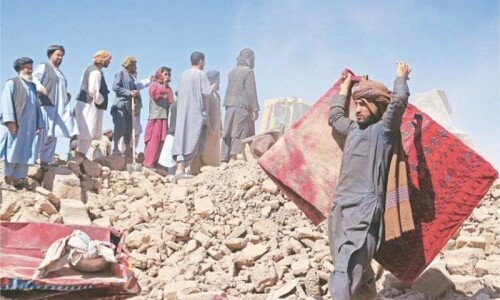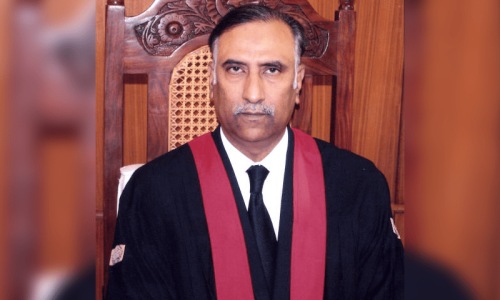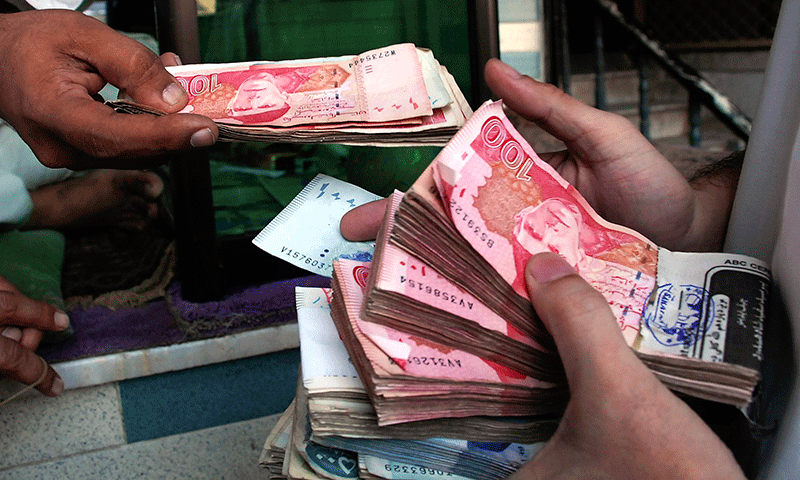DUBAI: Humanitarian concerns have been raised over Afghanistan being left out of United Nations climate negotiations for a third year in a row, as the country grapples with worsening drought and floods.
Dozens of people were killed in Afghanistan, one of the world’s most vulnerable countries to climate change, after heavy rains triggered flash floods that swept across drought-stricken land earlier this year.
But the country is absent from the COP28 climate summit in Dubai, having been left out of such UN talks since the Taliban took over Kabul in 2021.
No foreign government has formally recognised Taliban leadership, and it does not have a seat at the UN General Assembly. Foreign officials have cited the Taliban’s restrictions on women as the reason for current isolationist policies, particularly its barring of girls and women from high school and universities.
However, some have questioned the country’s continued exclusion. Humanitarian and international officials said they made efforts this year to allow Afghan representatives to be able to attend, coinciding with broader talks among foreign governments and multilateral institutions on how to deal with the Taliban.
Though ultimately unsuccessful, “there’s hope that maybe next year you might see engagement with Afghanistan in some capacity again,” said Qiyamud Din Ikram of the nonprofit Refugees International on the sidelines of the COP28 summit.
Impact on women
The UN Framework Convention on Climate Change (UNFCCC)’s COP Bureau, which is responsible for accrediting parties to the annual summits, decided at a Nov 2022 meeting to defer a decision on future Afghanistan representation. The Taliban administration has called its COP28 exclusion “regrettable”.
“Efforts were made to have the representatives of Afghanistan participate in the 28th UN Climate Change Conference…but no positive response was received,” said Rouhullah Amin, head of climate adaptation at the country’s National Environmental Protection Agency (NEPA), now run by the Taliban.
A senior UN source said UN and other international officials had made efforts in recent months to get NEPA officials and other Afghan representatives present at COP28. The UNFCCC did not respond to a request for comment on Afghanistan’s lack of participation at COP28.
In rural Afghanistan, women are responsible for fetching water for their families, an increasingly difficult task as the country struggles with drought. Women make up many of the 20 million Afghans facing severe food insecurity, exacerbated by declining food aid as governments slash Afghanistan’s humanitarian funding.
Some nonprofits have said isolationist policies can further hurt women.
Payvand Seyedali, Afghanistan’s country director for nonprofit Women for Women International, said: “We don’t have the luxury of not engaging with the de facto authorities in Afghanistan.” The Taliban say they respect women’s rights in line with their interpretation of Islamic law.
Others said Afghan women feel disengagement is appropriate until the Taliban rolls back restrictions.
“Every time they see the Taliban being welcomed in foreign capitals, it sends a message that their (women’s) rights do not matter to the rest of the world,” said Heather Barr of Human Rights Watch.
Published in Dawn, December 12th, 2023















































Dear visitor, the comments section is undergoing an overhaul and will return soon.